"I believe in white supremacy until blacks are educated to a point of responsibility." - John Wayne, 1971.
My first recollection of John Wayne is as Davy Crockett in The Alamo (1960). He was a heroic fighter for his country, gallantly going down to defeat against overwhelming odds. Though I can't recall specific films, I'm quite certain that as a young lad I saw Wayne in many other movies, always wearing the proverbial white hat, standing up for justice and waging the good fight. He was no hero to me like Steve McQueen ( I was into "cool" early on) but he appealed to a young boy's sense of morality, confirmed by the principle of might makes right.
Then I became politically aware. Growing up as I did in the Sixties and Seventies in the People's Republic of Berkeley, it is not surprising that I was influenced by leftist politics (I'm a confirmed lefty to this day). We had heroes aplenty in popular culture, notably in rock 'n roll. Most villains were politicians, many conveniently placed in the White House or other seats of power. But there was also Mr. Wayne.
Other conservatives stars were benign like Bob Hope. People so embedded in the establishment that we could only strongly suspect their political leanings. We interpreted their silence on the Vietnam War or Civil Rights as tacit approval and disinterest, respectively. But Wayne opened his big yap, and promptly stuck his foot in it.
Wayne was the poster boy for the conservative backlash against the emerging counter culture. In that tough guy drawl he would issue homilies that evoked mom's apple pie. To wit: "Sure I wave the American flag. Do you know a better flag to wave? Sure I love my country with all her faults. I'm not ashamed of that, never have been, never will be." Love it or leave it. My country right or wrong. United we stand.
But the man born as Marion Morrison was not just going to talk the talk. He walked the walk. His response to dissent over U.S. involvement in the Vietnam War included making a film in support of that war, The Green Berets (1968). It's tagline: "They had to be the toughest fighting force on earth - and the men who led them had to be just a little bit tougher!" It's one of those taglines that actually says a lot about film. It was a pro war propaganda plain and simple in which a cynical reporter is shown the light about the virtues and necessity of US actions in Nam. Americans were the heroes rescuing women and children from the evil Viet Cong. Forget what you heard about the Mai Lai massacre.
The film was widely panned, perhaps in part for its message but mostly because it was a lousy movie. Conservatives rallied to it and to Wayne.
A year later Wayne won a gratuitous Oscar for the schlocky True Grit. This in a year that Dustin Hoffman and Jon Voight were nominated for Midnight Cowboy along with Richard Burton for Anne of a Thousand Day. It not only was a horrible choice, but it ticked a lot of us for political reasons. It also further demonstrated how silly claims of Hollywood's liberal bias can sometimes look.
It was two years after that career high point that Wayne's infamous Playboy magazine interview hit the stands. As the quote at the the top of this post indicates, Wayne managed to insult every African American in the country. He also took pot shots at Native Americans, ones more lethal than those imaginary one fired by his many Injun-killing characters: "I don't feel we did wrong in taking this great country away from them if that's what you're asking. Our so called stealing of this country was just a question of survival. There were great numbers of people who needed new land the Indians were selfishly trying to keep it for themselves.... I'm quite sure that the concept of a Government-run reservation... seems to be what the socialists are working for now — to have everyone cared for from cradle to grave.... But you can't whine and bellyache 'cause somebody else got a break and you didn't, like those Indians are." Take that you whiny Indians!
So now the bete noir of the left had lost a lot of mainstream love. He still made another eight films before succumbing to cancer in 1979 and his box office numbers remained credible. He was, after all, a star and the public will forgive much greater transgressions from its film icons than a few ill timed, albeit racist, remarks.
For what it was worth I completely turned my back in the man. Not that it made any difference to anyone. Anyway I had already refused to watch anything featuring Wayne for several years. The grudge was to last couple of decades more decades.
But to stay away from Wayne is to stay away from the great director, John Ford as Wayne featured in many of Ford's best films. That is to say it's cutting off your nose to spite your face.
John Wayne was never a great actor. He was a great star. One of the best. He had a presence that helped make some good films masterpieces. The classic Ford Western, Stagecoach (1939) is immeasurably enhanced by Wayne as the Ringo Kid. Indeed his screen entrance in it is one of the greats of all time (pictured above). Ringo Kid is a few shades different than the characters that Wayne came to be mistakenly identified with. For one he's wanted by the law and he's got vengeance on his mind. This is a younger, hipper Wayne who of all things falls in love with a hooker (one with a heart of gold, of course).
Wayne is also a dark character in Ford's greatest film The Searchers (1956). Again he's seeking vengeance. There's something shady about his Ethan Edwards, namely how he came to have so much money. Then there are the looks he exchanges with his brother's wife. He's also plainly a bigot and this is portrayed as a no- question-about detriment to his character. This is surely Wayne's best performance.
Wayne featured in a few films by another great American director, Howard Hawks. Most notable of these is Red River (1948). Here again there is nuance to a Wayne character: obstinacy, temper and (here it is again) vengefulness. His adopted son is played by Montgomery Clift and its hard to imagine two more different actors working closely together. Part of the reason they succeeded was an agreement not to talk politics.
Ford's last great film was The Man Who Shot Liberty Valance (1962). The film would beembodies. He is the unbeatable force of good. No liberal milquetoast, but a man willing to throw a punch, issue a threat or shoot his gun to make things right. Talk is cheap. He's everything appealing about John Wayne, even to a repeal-the-second-amendment radical such as myself. The fact is that American films need an occasional brutish gun toting fighter, even if he's ham fisted and intellectually derelict. Inglourious Basterds wouldn't have been nearly so good if Brad Pitt and his men had gone into Germany to rehabilitate Nazis.
So Wayne didn't just happen to show up in some pretty good films. He played a type of role that is central to American mythology. That he bought into it as real life philosophy was to his detriment as a human being and should be irrelevant to our film going pleasure. Wayne, in fact, reflects the macho American style that emphasizes brawn over brain. They're the type of people we want taking the orders of cooler heads. They thus develop a resentment at having to follow orders and only being able to exercise the power of their fists or guns and not of their intellect. It is a type of rage evident today among conservative Americans who bristle at another intellectual liberal in office seemingly entrenching power in Washington and away from them (never mind that this fear is poppycock). Americans don't want to just kick ass, they want to dictate the terms. Wayne's characters often did both. It's also no accident that he was often settling scores. Americans like to see the tit for tat. Our very un Western support of capital punishment is a reflection of a basic eye-for-eye philosophy at the heart of the American ethos. Many Americans also find their feathers ruffled over such niceties as due process, preferring a simple sock in the jaw. Wayne did not play lawyers or professors. He was never loquacious. He was all about taking action. Seriously, who'd want a Wayne soliloquy? We want him meting out justice from the barrel of a gun. Ford had the good sense to give Wayne as few lines as possible. Interestingly, Wayne is perhaps most thought of us as a plain old fashioned good guy in Westerns and war films. In truth Wayne's more memorable characters had some moral complexity to them. Even Doniphon was a tortured soul who suffered greatly at the loss of his one great love. Wayne's greatest attribute as an actor was always surprising us with the different shades to his character, just as often revealed with silence as words.
Ironically in another Ford classic, Fort Apache (1948), Wayne's character is the one who cautions restraint and urges negotiations with nearby tribes while the real life liberal Henry Fonda plays a Custer-like officer who wants to charge in and fight. Today the movie can and has been seen as a metaphor for U.S. adventures in Vietnam and Iraq. Or any place where American forces have ignored local custom and policy at their own peril.
John Wayne is a seminal character in my film watching experience and a supporting player in my political development. Thankfully I've matured enough, at long last, that I can separate the two.




.jpg)






No comments:
Post a Comment